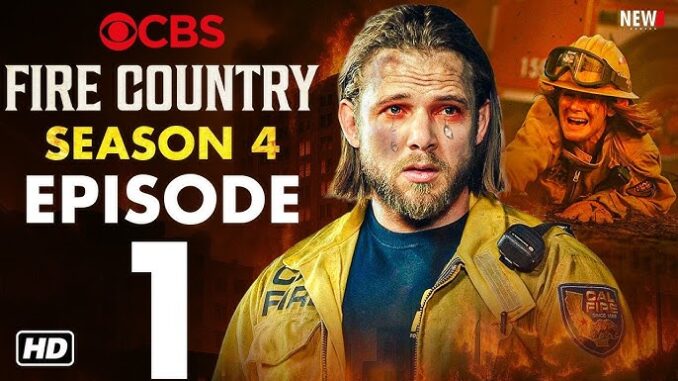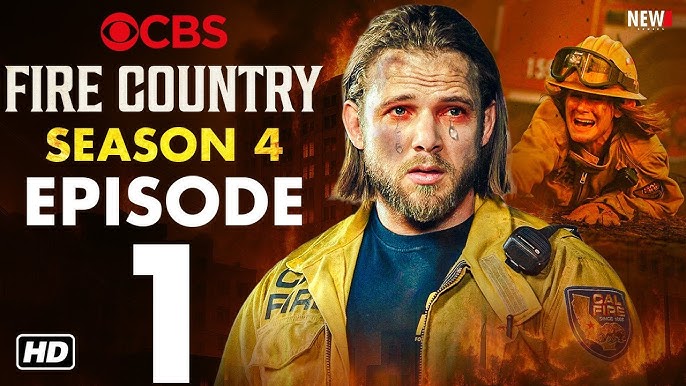
The Ember and the Aftershock: Decoding ‘Fire Country’ Season 4’s Explosive Premiere, “md11”
Anticipation hung thick in the air, a palpable tension akin to the unnatural stillness before a lightning strike, as fans awaited the curtain-raiser for “Fire Country” Season 4. And when “md11” finally dropped, it wasn’t just a premiere; it was a detonation, a seismic event that not only redefined the landscape of Edgewater but irrevocably altered the emotional terrain of its inhabitants. This wasn’t merely a return to the familiar crackle of wildfire and the grit of the CalFire crews; it was an immersive plunge into an inferno, both literal and metaphorical, leaving viewers breathless and begging for the next ember.
From its opening shot, “md11” asserted its intent: to be a premiere of unparalleled scale and visceral impact. The episode didn’t ease us back in; it hurled us into the maelstrom. A seemingly ordinary day, bathed in the deceptive golden light of a California autumn, quickly dissolved into chaos. The initial spark wasn’t a slow burn, but an instantaneous, wind-driven blaze erupting from the parched hills, a ravenous beast devouring everything in its path. Cinematography shifted from panoramic shots of an idyllic forest to claustrophobic close-ups of terrified wildlife and the frantic, ash-streaked faces of firefighters, immediately conveying the overwhelming power of nature untamed. The acrid tang of superheated air, the roar of the fire, the urgent crackle of radio dispatches – every sensory detail was meticulously crafted to place the viewer squarely in the heart of the conflagration.
But the “explosive” nature of “md11” extended far beyond the immediate threat of the wildfire. True to “Fire Country” form, the flames served as a crucible, intensifying the personal dramas that are the show’s beating heart. Bode Leone, still grappling with his intricate dance between freedom and responsibility, found himself thrust into a leadership role far more perilous than any he’d faced. A critical decision, made under duress, led to a chain of events that culminated in a literal explosion – a forgotten, illegal cache of outdated mining explosives ignited by the encroaching fire. The resulting blast was not just a special effect; it was a narrative earthquake, sending shockwaves through the entire cast. Buildings crumbled, structures vital to the community’s operations were decimated, and, most agonizingly, the fates of several beloved characters were left hanging precariously in the balance.
The genius of “md11” lay in its refusal to offer easy answers. The episode was a masterclass in high-stakes cliffhangers. The aftermath of the explosion left Edgewater reeling, not just from the physical damage, but from the gaping emotional wounds. We saw the raw, unfiltered terror in Gabriela’s eyes as she searched for a missing colleague, the stoic resolve of Vince buckling under the weight of unimaginable loss, and Sharon’s desperate scramble to rally a fragmented community. The premiere didn’t just pose questions about survival; it challenged the very foundation of trust and resilience that the characters had painstakingly built over three seasons. Whose lives were irrevocably changed? Who would emerge from the wreckage, and who would be lost to the flames and the debris?
“Fire Country” Season 4’s premiere, “md11,” wasn’t just an episode; it was a statement. It was a reaffirmation of the show’s commitment to high-octane drama, gritty realism, and deeply personal storytelling. It set a relentless pace, marrying heart-stopping action with gut-wrenching emotional stakes, and proved that even after three seasons, the fires of Edgewater could still burn brighter, and more devastatingly, than ever before. As the credits rolled on a landscape still smoldering and a community teetering on the brink, one thing was clear: “md11” wasn’t just the start of a season; it was the genesis of an entirely new era of challenges, sacrifices, and the enduring, explosive spirit of those who run towards the fire.
